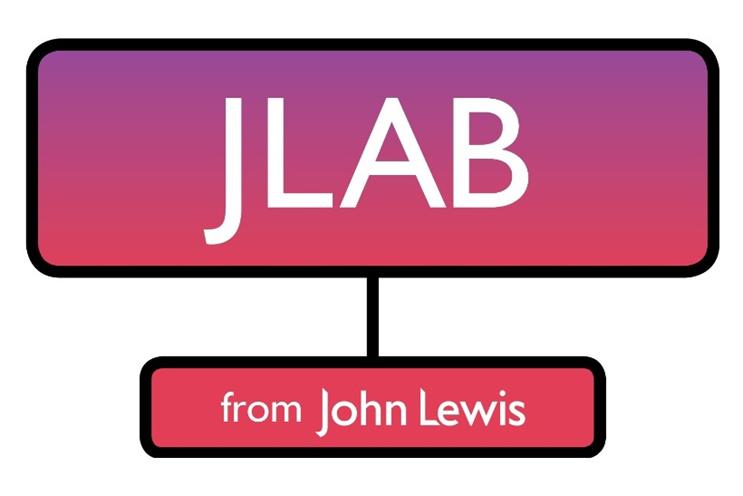
Each brand has taken a different approach, but the love-in between start-ups and corporates is still so new that it’s hard to tell what works.
John Lewis pulled it off, and that's the exception rather than the rule in the corporate world
One increasingly popular approach is to use a third-party to create an accelerator programme.
L Marks, founded by serial entrepreneur Stuart Marks, has partnered with John Lewis, William Hill and delivery firm DPD to set up accelerators and incubator programmes.
The idea came from a "chance meeting" between Stuart Marks and , Marks (pictured below) told Marketing in an interview.
In 2013, Marks had been on a trade mission to Israel, organised by Number 10, to take retailers out to the country. There he met Coby and the pair struck up a conversation about innovation in big organisations.

"Paul is often quoted as saying that John Lewis doesn’t have answers to all the problems," says Marks. "There’s lots of the business that has to be dealt with by legacy suppliers, but [the idea was] it would be brilliant to engage with start-ups and have their enthusiasm and solutions in the business."
He adds: "That was interesting – when I’m investing, I’m looking for corporates to validate [start-ups]. John Lewis was looking for organisations to work with. We thought there might be an interesting marriage there."
The pair decided to run JLAB as a joint venture, meaning Marks had just as much stake in finding a good start-up fit for John Lewis as the retailer did. Now, says Marks, brands are queueing up to launch their own programmes, with three more launching later this year with data, automotive and retail brands.
The labs model certainly isn't for every brand, not least because it requires buy-in at the top levels. Marks says his company has turned down brands who don't have the right attitude towards start-ups and mentoring, while others struggle to persuade the C-suite of the benefits.
Marks credits John Lewis' board and managing director Andy Street with "great foresight and vision" for taking on JLAB.
"It was nothing they had ever done before," he says. "It was way outside their comfort zone. But they pulled it off, and that's the exception rather than the rule in the corporate world."
How it works
L Marks’ approach varies brand to brand, but the company came up with a highly structured approach for John Lewis, producing a detailed, 12-week programme and clear briefs. It then invited its network of global start-ups to apply for the programme.
L Marks is paid a fee by brands for its services – Stuart Marks won’t reveal how much – and also generally takes a stake in the winning start-up. For Marks, profit is more likely to come from the start-up investment than the brand fees. "We’re not Accenture, squeezing out a day rate," he says.
He adds: "Typically, there will be five companies that come into the lab and we take option agreements with each. In the event one wins, we put £100,000 in [along with the brand], and that effectively triggers the right for us to convert the cash into equity.
"We negotiate with the start-ups before they come into the lab environment, and they have time to negotiate term sheets. We ask for a lot of financial information, so we know what we’re dealing with."
According to Marks, the fact his firm also invests in the winning start-up gives brand partners "a lot of comfort".
Don’t underestimate the admin
Inevitably, not everything runs smoothly.
, William Hill’s innovation director, Crispin Nieboer, said the gambling brand had failed to agree terms with two of its finalists from its first ever L Marks lab.
John Lewis, meanwhile, has been quietly criticised by industry insiders for taking so long to launch a trial project with the winner of its first JLAB, Localz. A year on from winning, the Australian geo-location start-up had only launched one beacons trial with John Lewis.
"I think John Lewis by its own admission would say, because it’s the first time they had done this, implementation was slower than they had hoped," says Marks. "They have learnt from that, and that’s part of the whole process as a corporate.
"This year, John Lewis has realised it needs to be more agile."
Marks points to Qudini, a runner-up in JLAB 2015. Despite not winning the competition, John Lewis trialled the queue-shortening service in its shoe department in two weeks.
"For John Lewis, that’s the quickest they’ve done anything," says Marks. He adds that Localz is now on John Lewis’ "rollout map".
The future of the lab model
John Lewis will shortly announce its third JLAB, while the William Hill accelerator is ongoing. Marks says the idea is to "keep it fresh", with the upcoming JLAB looking very different from previous iterations.
With most brands shy of extra admin and risk, is it likely that the third-party lab approach will take off?
Asked about in-house lab efforts, like Tesco Labs, Marks says: "I’m not a big fan of labs run internally. It’s quite hard, under the mothership, to do this properly."
"Even though you’re told that you can get on fast and break things, you’re still part of a corporate. I think the solution we’ve found in terms of a partnership model gives enough of an anchor to corporates to give start-ups a great experience, while leaving them free enough from influence to flourish."



.jpg)
.jpeg)
